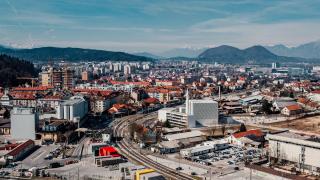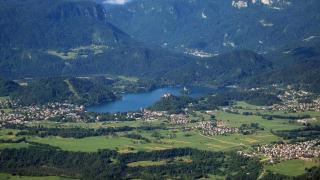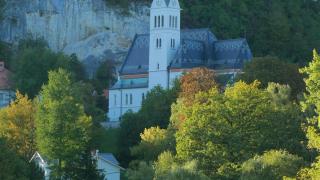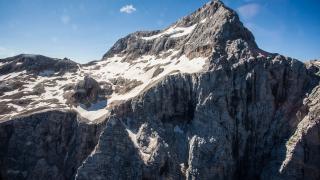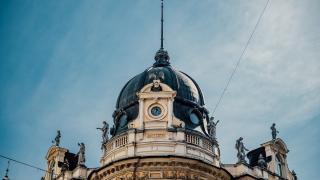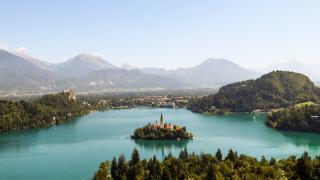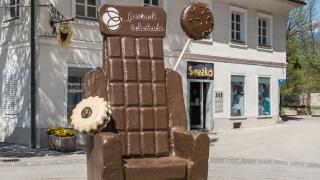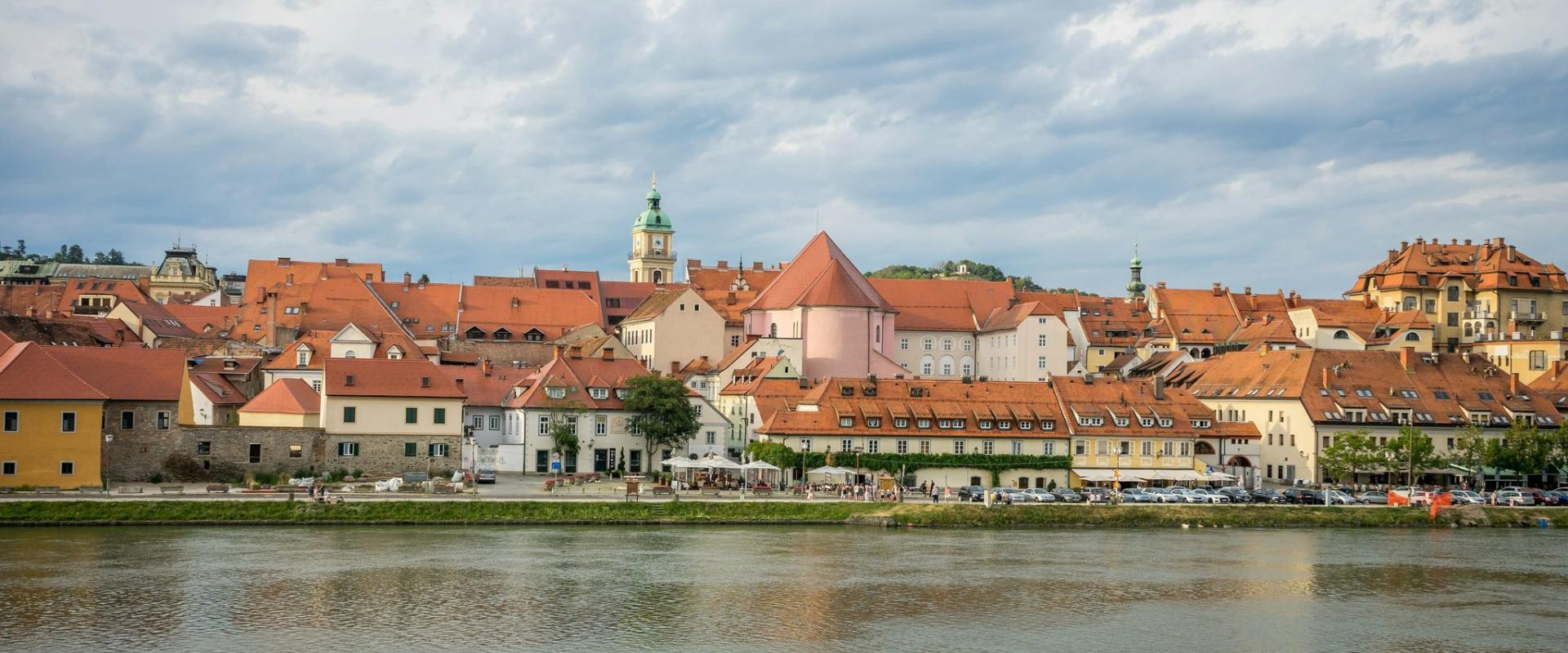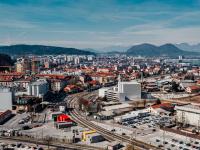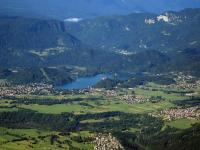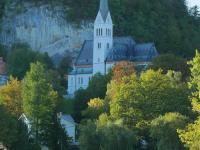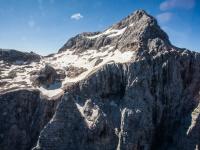Why Study in Slovenia?
Slovenia offers a unique academic environment.
- Universities like Univerza v Ljubljani and Univerza v Mariboru are internationally recognized.
- Degrees are accepted across the EU and globally.
- Tuition for EU students starts at €0 for public universities; non-EU students pay from €2,000 to €5,000 per year.
- Monthly living costs in Ljubljana average €600–€900, including accommodation and food.
- Cities such as Ljubljana and Maribor are compact, walkable, and have dedicated student zones.
- Public transport is reliable; a monthly Urbana card in Ljubljana costs €20 for students.
- Slovenia’s location blends Central European and Balkan influences in daily life and campus culture.
- Over 150 English-taught programs are available, especially at master’s and doctoral levels.
- Slovene is the official language, but English is widely used in academic settings.
- Student dormitories are subsidized; a single room costs around €120–€200 per month.
- Slovenia is ranked among the safest countries in Europe, with low crime rates.
- Green spaces and access to nature are part of student life, with Triglav National Park nearby.
Universities and Study Options
Slovenia has three public universities:
- Univerza v Ljubljani (University of Ljubljana): Founded 1919. Largest in Slovenia. Over 40,000 students. Located in the capital, Ljubljana.
- Univerza v Mariboru (University of Maribor): Second largest. Around 13,000 students. Located in Maribor, eastern Slovenia.
- Univerza na Primorskem (University of Primorska): Established 2003. Based in Koper, on the Adriatic coast.
Specialized institutions:
- Akademija za gledališče, radio, film in televizijo (AGRFT) in Ljubljana for performing arts.
- Jožef Stefan Institute in Ljubljana for science and technology research.
- Alma Mater Europaea offers applied sciences and health programs.
Popular study fields for international students:
- Environmental sciences (focus on Alpine and karst ecosystems)
- Engineering (mechanical, civil, electrical)
- Business and economics
- Arts and design
English-taught programs:
- Over 150 courses and several full degree programs in English, mainly at master’s and doctoral levels.
- Bachelor’s programs in English are limited but growing.
Academic calendar:
- Academic year starts October 1 and ends September 30.
- Two semesters: winter (October–January), summer (February–July).
- Tuition for non-EU students: €2,000–€12,000 per year, depending on program and level.
- Most campuses are within walking distance of city centers.
Application Steps and Entry Requirements
Applications to Slovenian universities are submitted via the national eVŠ portal (https://portal.evs.gov.si/prijava/).
- The eVŠ portal opens for first-cycle (bachelor's) applications in February. Deadlines are usually in March or April.
- Second-cycle (master's) and third-cycle (PhD) deadlines vary by institution. Most close between May and September.
- Required documents include: translated and certified copies of previous diplomas, transcripts, and a copy of your passport.
- All foreign qualifications must be recognized by the university or ENIC-NARIC Slovenia. This process can take 1-2 months.
- For Slovene-taught programs, proof of Slovene language proficiency (usually B2 level) is required. Some universities offer preparatory Slovene courses.
- For English-taught programs, proof of English proficiency is needed. Accepted certificates include IELTS (min. 6.0) or TOEFL (min. 79 IBT).
- Application fees range from €30 to €60, depending on the university.
- Some programs require entrance exams or interviews, especially in arts or medicine.
- Admission decisions are usually released in July for autumn intake. Visa applications can start after admission.
- Most programs begin in October. Late applications are rarely accepted.
Visas, Residence, and Practicalities
Non-EU/EEA students require a Slovenian national visa (type D) or a temporary residence permit.
- Apply for a visa at a Slovenian embassy or consulate before arrival. Processing time: 15–60 days. Fee: €77.
- For stays over 90 days, apply for a temporary residence permit ("začasno prebivališče") through the embassy or at the Administrative Unit (Upravna enota) in Slovenia. Fee: €50–€102.
- EU/EEA students do not need a visa. Register residence within 90 days at the local Upravna enota. Bring proof of enrollment, health insurance, and sufficient funds.
- All students must register their address within 8 days of arrival at the local police station (Policijska postaja) or Upravna enota.
- Health insurance is mandatory. EU students use the European Health Insurance Card (EHIC). Non-EU students must buy Slovenian health insurance (Zdravstveno zavarovanje) or private coverage. Monthly cost: €20–€60.
- To open a Slovenian bank account, bring a passport, proof of enrollment, and Slovenian tax number (davčna številka). Major banks: NLB, SKB, Abanka. Account setup takes 1–5 days.
- Other paperwork: obtain a Slovenian SIM card, register for a tax number at the Financial Administration (FURS), and keep all official documents for residence renewal.
Student Life and Living in Slovenia
Student accommodation in Slovenia:
- Student dormitories ("študentski domovi") are available in Ljubljana, Maribor, and Koper. Monthly rent: €80–€160. Waiting lists are common, especially in Ljubljana.
- Private rooms in shared flats cost €180–€350 per month in Ljubljana. Maribor and Koper are cheaper.
Cost of living:
- Average monthly expenses: €400–€700, including rent, food, and transport.
- Groceries: €150–€200/month. Coffee in a café: €1.50–€2.50. Cinema ticket: €5–€7.
Getting around:
- Ljubljana has an efficient city bus system (LPP). Student Urbana card: €20/month unlimited rides.
- Maribor and Koper offer student discounts on local buses. Bicycles are popular in all cities.
- Intercity trains and buses connect major towns. Student discounts apply with ISIC or Slovenian student card.
Student meals:
- The "študentski boni" system subsidizes meals in partner restaurants. Students pay €2–€4 per meal. Maximum two meals per day. Registration required at the Student Organization office.
Social life and organizations:
- Student organizations (ŠOU, Študentska organizacija) organize events, trips, and language exchanges.
- Popular student hangouts: Metelkova (Ljubljana), Lent (Maribor), city cafés.
- Slovenians value punctuality and direct communication. Most students speak English. Learning basic Slovene is appreciated.
Essential Tips for a Smooth Start
International student offices at Univerza v Ljubljani, Univerza v Mariboru, and Univerza na Primorskem offer help with paperwork and orientation. Študentska organizacija Slovenije (ŠOS) provides legal advice, housing support, and social activities for students. Join expat groups like "Foreigners in Ljubljana" on Facebook for peer support and local tips.
Academic etiquette in Slovenia values punctuality and formal address. Professors are addressed as "profesor" or "profesorica" plus surname. Group work is common in seminars. Plagiarism is strictly penalized.
Useful apps: Urbana (Ljubljana public transport), mBills (mobile payments), Boni (student meal system), Bicikelj (Ljubljana bike sharing), and eUprava (government services). University portals like VIS (Ljubljana) and AIPS (Maribor) are used for grades and schedules.
Emergency number in Slovenia: 112. University health centres (zdravstveni dom za študente) are in major cities. European Health Insurance Card (EHIC) is accepted.
Checklist: Register residence within 3 days of arrival. Open a Slovenian bank account. Get a Slovenian SIM card. Activate student meal subsidies. Obtain a student ID card.
